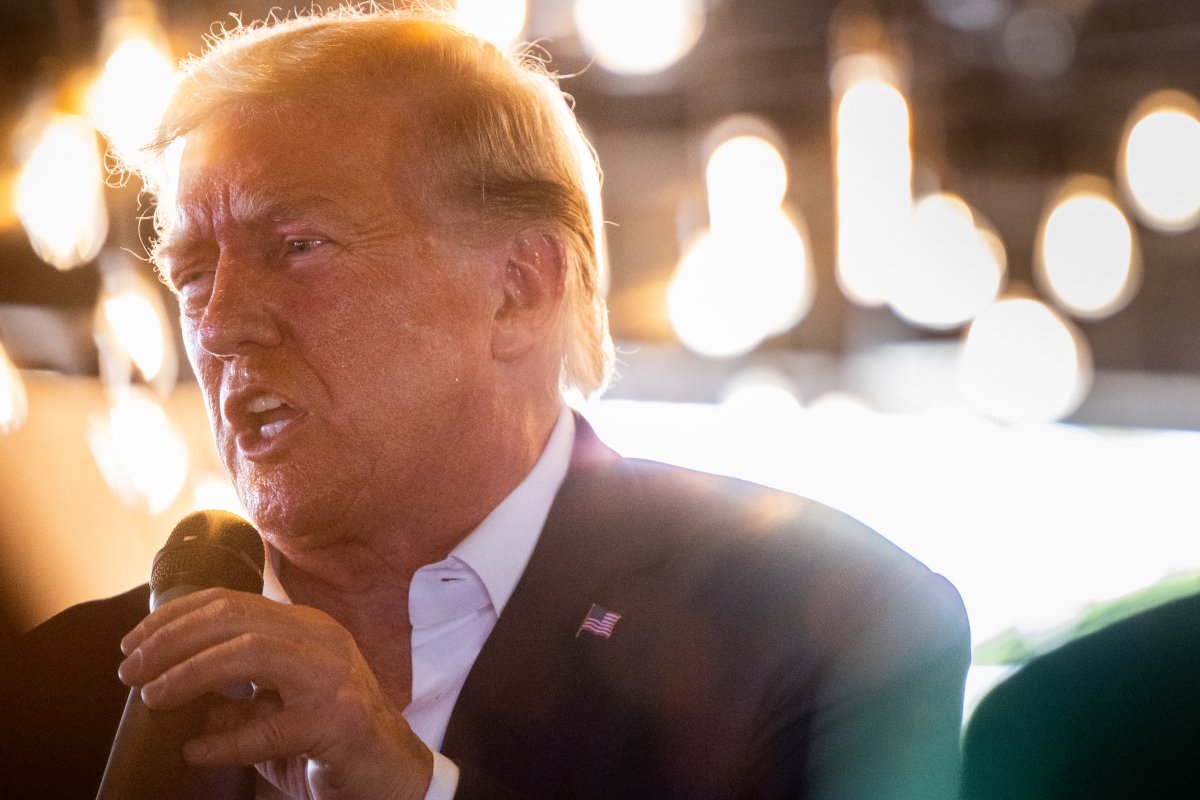Former President Donald Trump could pardon himself from the criminal charges he faces in Georgia if he were to be elected back to the White House in 2024, according to conservative, pro-Trump attorney Mark Levin, but a legal scholar told Newsweek he doesn't agree.
Levin, who has previously praised members of Trump's legal team over their election lawsuits and fraud claims, laid out a four-step argument on why the former president would be able to pardon himself, despite some speculation that he'd be unable to do so in the Peach State.
Trump was indicted for the fourth time on Monday after a grand jury in Fulton County charged him and 17 of his associates in a sweeping racketeering case for their efforts to overturn the results of the 2020 election in Georgia. He has also been indicted on state charges in New York in a hush-money case as well as federal charges in the Mar-a-Lago confidential documents case and a separate election interference case.
The four indictments, all of which Trump has pleaded not guilty to, come as Trump remains the GOP 2024 frontrunner. If he's elected to a second term, he would have presidential pardoning powers again, which he could use on himself. But while a sitting president can erase federal convictions, pardoning powers don't extend to state criminal charges. So, Trump could have difficulty pardoning himself in Georgia or New York.
But pointing to the Constitution, Levin argued that Trump's federal authority should take precedence over state laws as defined by the Supremacy Clause.

In a post on X, formerly Twitter, Levin said that because the Constitution does not include language on whether a president can be indicted and because the Justice Department has historically opposed indicting a sitting president, a conviction on state charges would be the same as a conviction on federal charges. Thus, he should be able to pardon himself on the racketeering charges in Georgia.
"Given the DOJ's position, and the Supremacy Clause in the Constitution, I would argue strongly that the idea that a president cannot be indicted at the federal level because it would cripple the executive branch, but can be indicted by local DAs, would have exactly the same effect as a federal indictment, except there are thousands of local and state prosecutors making the crippling of a president even more likely," Levin wrote.
"FURTHERMORE, if indicted and even convicted, the idea that a president cannot pardon himself from state charges is absurd, again, not only because of the Supremacy Clause, but the same considerations that apply to a federal conviction would obviously apply to a state conviction," he said.
His comments come in opposition to the view of other legal scholars like Jonathan Turley, who say presidential pardoning powers do not extend to state convictions.
"This novel argument runs against the federalism grain of the Constitution," Turley told Newsweek about Levin's argument, noting that "The text and history of the pardon clause strongly militate against such interpretation extending the federal authority to state crimes."
Although he disagreed with Levin's view of pardoning powers, Turley added that there could be other "countervailing constitutional considerations" that could be weighed by federal courts.
Many experts note that because there is no precedent for something like this, Trump's fate remains to be known and the legal discussions about pardoning power will have to be played out in the courts.
"We're relying on some very big ideas about federal power and executive power that were articulated a very long time ago, that did not directly relate to situations like this," Quinn Yeargain, a professor specializing in state constitutional law at Widener University Commonwealth Law School, told USA Today.
Uncommon Knowledge
Newsweek is committed to challenging conventional wisdom and finding connections in the search for common ground.
Newsweek is committed to challenging conventional wisdom and finding connections in the search for common ground.
About the writer
Katherine Fung is a Newsweek reporter based in New York City. Her focus is reporting on U.S. and world politics. ... Read more
To read how Newsweek uses AI as a newsroom tool, Click here.








